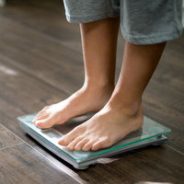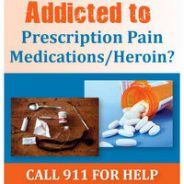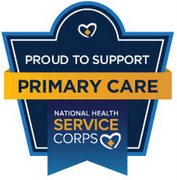Save by Rx Shopping
Consumers Find Some Drugs Cheaper Without Insurance
In a front-page article, the New York Times (12/9, A1, Ornstein, Thomas, Subscription Publication) reports that consumers are “increasingly” finding that some drugs are cheaper without insurance than with it. According to the Times, “one industry expert estimated that up to 10 percent of drug transactions” – or 400 million prescriptions each year – could fall into this category.
In a separate article, the New York Times (12/9, Ornstein, Thomas, Subscription Publication) offers advice to readers on how to save money on prescription drugs.
Beating diabetes
Will this plan reverse type 2 diabetes?
The trial, which is called the Diabetes Remission Clinical Trial (DiRECT), builds on earlier work by co-lead investigator Prof. Roy Taylor, director of the Magnetic Resonance Centre at Newcastle University in the United Kingdom. The earlier work showed that a radical change in diet can reverse type 2 diabetes.
The results of the trial, just reported in The Lancet on December 5, suggest that remission of type 2 diabetes may be achievable through intensive weight management programs supported by routine primary care.
The team’s findings revealed that after 12 months of radical weight management, participants lost an average of 10 kilograms (22 pounds), and that 45.6 percent of them went back to being non-diabetic without medication.
‘Long-term maintenance of weight loss’ focus
Prof. Taylor says that significant weight loss reduces the amount of fat in the liver and pancreas so that they can start working normally again.
“What we’re seeing from DiRECT,” he remarks, “is that losing weight isn’t just linked to better management of type 2 diabetes: significant weight loss could actually result in lasting remission.”
“Our findings suggest that even if you have had type 2 diabetes for 6 years,” adds trial co-leader Prof. Michael Lean, chair of Human Nutrition at the University of Glasgow in the U.K., “putting the disease into remission is feasible.”
He says that their approach differs from the conventional way of managing type 2 diabetes in that it focuses “on the need for long-term maintenance of weight loss through diet and exercise and encourage[s] flexibility to optimize individual results.”
Addiction Treatment
New Open Access Treatment Center
There is a new 24/7 Open Access Center in Rochester. The center, located at 1350 University Avenue, is open 24 hours a day, 7 days a week, and will deliver immediate engagement, assessment, and referral services for people suffering from a substance use disorder. The current hours of operation are Monday to Friday 4:00 – 10:00 pm and Saturday and Sunday 9:00 am – 10:00 pm. Read the brochure (in English and Spanish) for the most up to date information.
Center staff are available around the clock to assess people in need of treatment, and refer them to the appropriate level of care. This Open Access Center is a collaborative project of RecoveryNet, a coalition of nine community-based, OASAS-certified providers, which is led by Delphi Drug and Alcohol Council. It is an innovative model of care, and the first of its kind in New York State. In addition to providing assessments and referrals to care, the center will also work to collaborate with local law enforcement to direct low-level offenders to treatment.
Open Access
1350 University Avenue, Rochester, NY 14607
(585) 627-1777
Seven days a week, 4:00-10:00 p.m
See the following summary for more information on Monroe County OASAS-certified Treatment Providers.
A Generational Effect?
Daughters Of Women Exposed To Childhood Trauma May Be At Increased Risk For Serious Psychiatric Disorders, Study Indicates.
In “Well,” the New York Times (11/29, Bakalar, Subscription Publication) reports, “The daughters of women exposed to childhood trauma are at increased risk for serious psychiatric disorders,” researchers found after studying some “46,877 Finnish children who were evacuated to Sweden during World War II, between 1940 and 1944.” Investigators also “tracked the health of their 93,391 male and female offspring born from 1950 to 2010.”
The study revealed that “female children of mothers who had been evacuated to Sweden were twice as likely to be hospitalized for a psychiatric illness as their female cousins who had not been evacuated, and more than four times as likely to have depression or bipolar disorder.”
According to HealthDay (11/29, Preidt), “the risk for hospitalization for mood disorders was not higher than normal among sons or daughters of men who had been evacuated as children,” the study also found. The findings were published online Nov. 29 in JAMA Psychiatry.
Smartphone Risk in Teens
Smartphones a Likely Culprit in the Recent Decline in Teen Mental Health
Around 2012, something started going wrong in the lives of teens.
In just the five years between 2010 and 2015, the number of U.S. teens who felt useless and joyless — classic symptoms of depression — surged 33 percent in large national surveys. Teen suicide attempts increased 23 percent. Even more troubling, the number of 13-to-18-year-olds who committed suicide jumped 31 percent.
In a new paper published in Clinical Psychological Science, my colleagues and I found that the increases in depression, suicide attempts and suicide appeared among teens from every background: more privileged and less privileged, across all races and ethnicities, and in every region of the country. All told, our analysis found that the generation of teens I call “iGen” — those born after 1995 — is much more likely to experience mental-health issues than their millennial predecessors.
What happened so that so many more teens, in such a short time, would feel depressed, attempt suicide and commit suicide? After scouring several large surveys for clues, I found that all of the possibilities traced back to a major change in teens’ lives: the sudden ascendance of the smartphone.
Click here to read the entire article by Jean Twenge in the November 19, 2017 issue of The Washington Post.
Don’t fall on ice!
You don’t see penguins slip & fall on ice.
Know why?
- They walk flat footed
- They take short steps
- They walk with their arms at their sides (not in their pockets)
- They concentrate on maintaining balance
Avoid slips, sprains and strains by watching out for snow-covered/black ice and uneven surfaces, checking your tread, practicing defensive walking and also walking like a penguin!
Do the penguin shuffle

University of Rochester Winter Walking Safety Tips
Environmental Health & Safety
OTC Pain Relief
OTC Pain Medications May Be Just As Effective As Opioids For Treating Short-Term, Severe Pain, Study Suggests.
The AP(11/7, Tanner) reports researchers found that over-the-counter pain medications may be just as effective as opioids “for treating short-term, severe pain” in EDs. The findings were published in the Journal of the American Medical Association.
HealthDay (11/7, Reinberg) reports the researchers “randomly assigned more than 400 patients who were suffering moderate-to-severe acute pain in an arm or leg to either ibuprofen plus acetaminophen, or to acetaminophen plus one of three narcotics: oxycodone (Oxycontin), or hydrocodone (Vicodin), or codeine.” The researchers found that two hours later, there was “no important difference” between the pain reported by those who received opioids compared to those who did not. The Los Angeles Times (11/7, Healy) reports the researchers found that the differences between the treatments “were statistically insignificant.”
The Washington Times (11/7, Kelly) reports Dr. Demetrios Kyriacou, an ED physician in Chicago, wrote in an accompanying editorial that preventing people from becoming addicted to opioids is key to ending the opioid crisis.
TIME (11/7, Park) also covered the story.
15 Questions
Most-Googled health questions in NY
- How do you stop diarrhea?
- How long does the flu last?
- How many calories should I eat in a day?
New Yorkers have a lot of questions about their health.
These are the New York area’s most-Googled health questions, answered by Dr. Alan Mensch, a pulmonologist and senior vice president of medical affairs at Plainview and Syosset hospitals.
Click here to read the full article.
Teen Drug Potential
Teens Dependent On Marijuana, Alcohol Likely To Have Lower “Social Economic Potential,” Study Suggests.
The New York Daily News (11/6, Dziemianowicz) reports University of Connecticut researchers in a new study using data from the Collaborative Study on the Genetics of Alcoholism “found that teens who are dependent on marijuana and alcohol ‘achieved lower levels of education, were less likely to be employed full time, were less likely to get married and had lower social economic potential.'”
The investigators “underscored that their study focused on chronic and dependent use – not just occasional recreational use of pot or booze,” and presented their findings at the American Public Health Association 2017 Annual Meeting & Expo.
Obesity Rates Rising
Health Experts Call For Changes To Food Environment As CDC Research Shows Rising Obesity Rates.
With obesity rates in the US at “a new high,” public health experts are calling for “an aggressive shift in strategy – one that would change the food environment through initiatives such as soda taxes,” USA Today (10/17, Toy) reports.
Traditional “public health efforts have centered on communicating messages about what is healthy in the hopes of changing people’s behavior,” but new research by the Centers for Disease Control and Prevention’s National Center for Health Statistics shows a steady increase in obesity rates among US adults, up from 30.5 percent in 1999-2000 to 39.8 percent in 2015-2016.
The article cites “Craig Hales, the study’s lead researcher and a medical epidemiologist at the CDC,” and notes that “physician Jerome Adams, who was sworn in as surgeon general in August, on Monday cited obesity as among the Department of Health and Human Services’ three top priorities,” with the other two being mental health and addiction.











 I'm a happy person who loves getting to know and being able to help people of all ages. I connect with little children (and the little child in most adults) almost immediately. Sharing the joys and trials of relationships, pregnancy and delivery, and family life are the things about family practice that really light my fire. I've found that having a sense of humor and seeing God's love at work can see us through some of life's most difficult times, if we can keep the faith and hang in there together.
I'm a happy person who loves getting to know and being able to help people of all ages. I connect with little children (and the little child in most adults) almost immediately. Sharing the joys and trials of relationships, pregnancy and delivery, and family life are the things about family practice that really light my fire. I've found that having a sense of humor and seeing God's love at work can see us through some of life's most difficult times, if we can keep the faith and hang in there together. 


